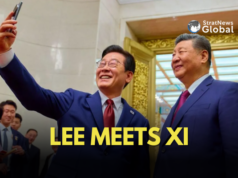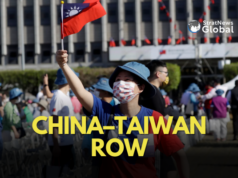India and Australia’s defence partnership has reached a new level of maturity, says Kim Herriot-Darragh, Research Fellow at the Australia India Institute, describing Defence Minister Rajnath Singh’s recent visit to Australia as symbolically significant. “We’re now moving from plucking the low-hanging fruit in the relationship towards genuine cooperation,” he said.
Darragh highlighted the practical value of recent agreements such as mutual air-to-air refuelling, noting that they enhance operational flexibility. “It involves a fairly technical level of operations and cooperation, and really helps extend the mutual range of each other’s air forces,” he explained.
Reflecting on the progress since Australia’s withdrawal from the Quad in 2008, Darragh said the two countries had advanced remarkably. “We’ve made such progress that expectations are now very high,” he observed, adding that defence organisations were now “building the basics of trust” to enable quick, coordinated responses when required.
He identified “India literacy” as one of Australia’s continuing challenges. While there is growing enthusiasm for collaboration, both nations are focused on self-reliance, which complicates industrial cooperation. “Both countries seek to make, produce and sell rather than buy from each other,” he noted, urging a deeper understanding of each other’s industrial environments.
On China, Darragh said Australia’s stance had hardened. “Both seek to manage tensions and engage where there is merit, but be resolute when red lines are crossed,” he remarked. Revelations about Chinese interference in Australian politics, he added, had accelerated this strategic recalibration.
Darragh stressed that Australia must not engage with Pacific nations merely as a counter to China but because “these regions are important in their own right.” He acknowledged some “missteps” in the Pacific but saw opportunities for cooperation with India in managing regional influence sensitively.
Looking ahead, he called for “organic, working-level cooperation” rather than reliance on top-down political momentum. “It shouldn’t be enough that we just sign an agreement and it makes a good announcement,” he said.
On Australia’s ties with Pakistan, Darragh described Canberra’s approach as “carefully calibrated,” focused on education and dialogue rather than arms sales. However, he suggested that resources could be redirected to smaller Indian Ocean countries where “they may go further and complement India’s own efforts.”
In a career spanning three decades and counting, Ramananda (Ram to his friends) has been the foreign editor of The Telegraph, Outlook Magazine and the New Indian Express. He helped set up rediff.com’s editorial operations in San Jose and New York, helmed sify.com, and was the founder editor of India.com.
His work has featured in national and international publications like the Al Jazeera Centre for Studies, Global Times and Ashahi Shimbun. But his one constant over all these years, he says, has been the attempt to understand rising India’s place in the world.
He can rustle up a mean salad, his oil-less pepper chicken is to die for, and all it takes is some beer and rhythm and blues to rock his soul.
Talk to him about foreign and strategic affairs, media, South Asia, China, and of course India.




